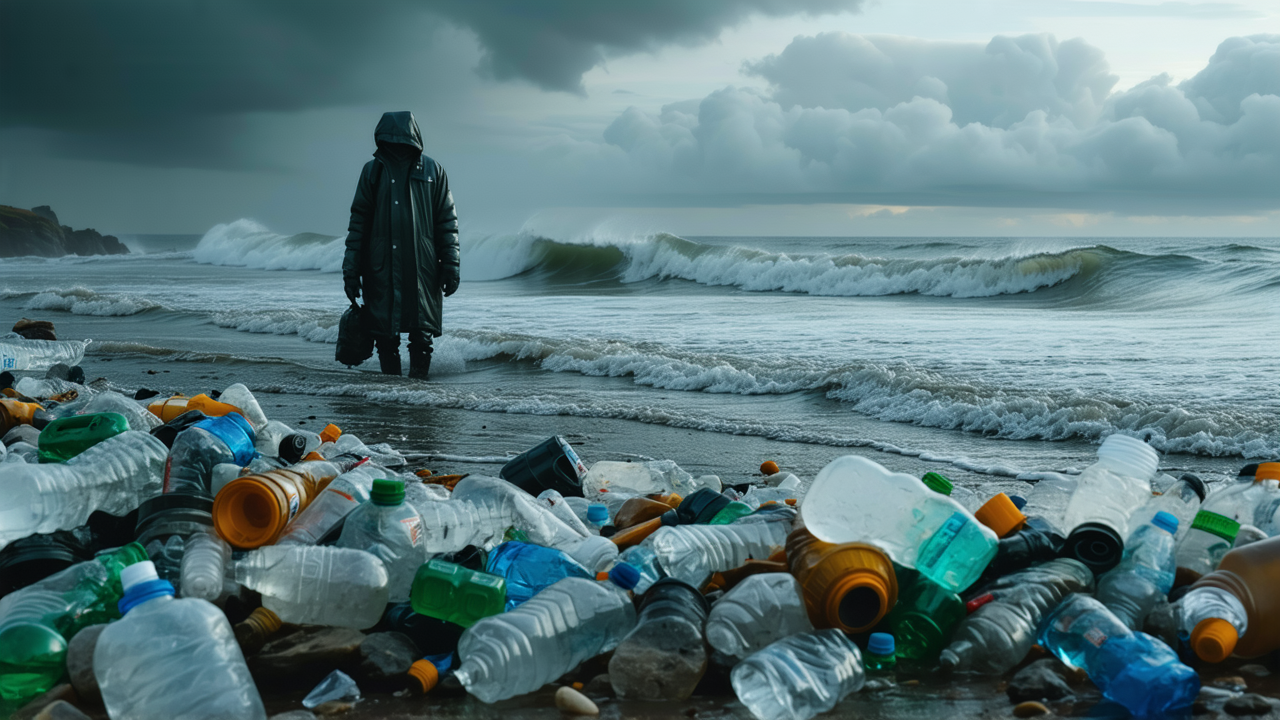Plastic Pollution: A Global Health Crisis Costing $1.5 Trillion Annually
Plastic Pollution: A Global Health Crisis Costing $1.5 Trillion Annually
A groundbreaking report published in the Lancet medical journal has revealed that plastic pollution is not only a major environmental threat but also a grave health crisis affecting people from infancy to old age. The study estimates that the economic cost of plastic-related health issues exceeds $1.5 trillion per year, a staggering figure that underscores the urgent need for global action.
The report, compiled by leading health researchers and doctors, highlights the alarming impact of plastic on human health, comparing it to the dangers of air and lead pollution. It warns that plastic pollution is a 'grave, growing and under-recognized danger' that has been largely overlooked in global health discussions.
Health Impacts Across the Lifespan
The report draws on a comprehensive review of epidemiological research, revealing consistent evidence of multiple health effects associated with exposure to plastic chemicals. These effects range from reduced reproductive potential in both men and women to perinatal complications such as miscarriage, low birth weight, and genital malformations in infants. In children, exposure to plastic chemicals has been linked to impaired cognitive development, insulin resistance, and obesity. Adults, on the other hand, face a higher risk of type 2 diabetes, cardiovascular disease, stroke, and cancer.
Dr. Philip Landrigan, a prominent researcher at Boston College, emphasized the urgency of the situation, stating, 'To those meeting in Geneva: please take up the challenge and the opportunity of finding the common ground that will enable meaningful and effective international cooperation in response to this global crisis.'
Microplastics: A Hidden Threat
The report also raises concerns about microplastics—tiny fragments of plastic that have been found in nearly every corner of the natural world, including within the human body. While the full health implications of microplastics are still being studied, scientists warn that their widespread presence poses a significant risk to human health.
The global production of plastic has skyrocketed from 2 million tons in 1950 to 475 million tons in 2022, and is expected to triple by 2060. However, less than 10% of all plastic is currently recycled, exacerbating the problem.
Climate and Plastic Crises Interconnected
Dr. Landrigan further pointed out that the plastic crisis is inextricably linked to the climate crisis. He stressed, 'There is no understating the magnitude of both the climate crisis and the plastic crisis. They are both causing disease, death, and disability today in tens of thousands of people, and these harms will become more severe in the years ahead.'
As the world grapples with the dual challenges of climate change and plastic pollution, the report urges global leaders to take decisive action. The upcoming talks in Geneva present a critical opportunity for nations to come together and agree on the world's first treaty on plastic pollution, marking a significant step toward addressing this pressing global issue.
With the stakes higher than ever, the need for immediate, coordinated, and comprehensive action has never been more urgent.
